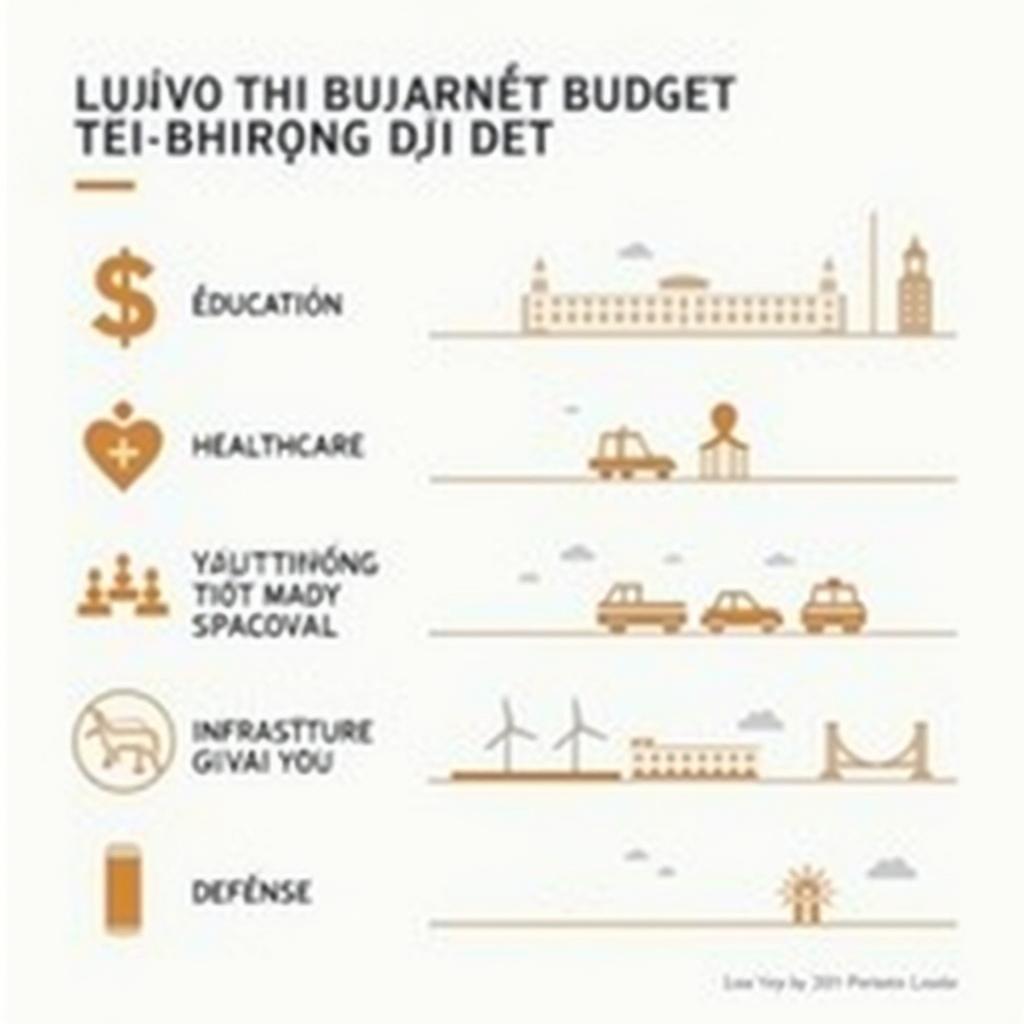Mở bài
Chủ đề Should Education Be Prioritized Over Other Sectors xuất hiện thường xuyên trong IELTS Writing Task 2 vì chạm tới trọng tâm chính sách công: ưu tiên giáo dục hay các lĩnh vực khác như y tế, hạ tầng, quốc phòng, nghệ thuật. Đây là dạng chủ đề “quốc sách” đòi hỏi người viết biết cân bằng giữa lợi ích dài hạn của giáo dục và những nhu cầu cấp bách khác để đưa ra lập luận thuyết phục, nhất quán.
Trong bài viết này, bạn sẽ học:
- 3 bài mẫu theo dải band 5-6, 6.5-7 và 8-9 kèm phân tích chấm điểm chi tiết theo 4 tiêu chí.
- Cách phân tích đề, ý tưởng đắt giá, cấu trúc câu dễ ăn điểm và từ vựng học thuật trọng tâm.
- Checklist tự đánh giá, mẹo quản lý thời gian và hướng cải thiện từ band 6 lên 7+.
Một số đề thi/tham khảo có thật và được đăng trên các nguồn uy tín:
- Cambridge IELTS 13: “Some people think that governments should spend more money on public services rather than on the arts. To what extent do you agree or disagree?”
- IELTS Liz: “Education is the single most important factor in the development of a country. To what extent do you agree or disagree?”
- British Council LearnEnglish: “Some people say that the government should pay for health care and education. To what extent do you agree or disagree?”
[internal_link: Luyện viết IELTS Writing Task 2 theo chủ đề Education]
1. Đề Writing Part 2: Should education be prioritized over other sectors?
Some people believe that education should be prioritized over other sectors in government spending to drive national development. To what extent do you agree or disagree?
Dịch đề: Một số người cho rằng giáo dục nên được ưu tiên hơn các lĩnh vực khác trong chi tiêu của chính phủ để thúc đẩy phát triển quốc gia. Bạn đồng ý hay không đồng ý ở mức độ nào?
Phân tích đề bài:
- Dạng câu hỏi: Opinion (Agree/Disagree – mức độ). Bạn cần nêu rõ lập trường (agree, disagree, hay partially agree), nhất quán từ mở bài tới kết luận.
- Thuật ngữ quan trọng:
- “prioritized”: được ưu tiên hơn, nghĩa là phân bổ nhiều nguồn lực, sự chú ý, thời gian.
- “other sectors”: y tế, hạ tầng, an sinh xã hội, quốc phòng, môi trường, nghệ thuật…
- “drive national development”: thúc đẩy tăng trưởng kinh tế, vốn con người, công bằng xã hội.
- Lỗi thường gặp của học viên Việt Nam:
- Lạc đề sang “education should be free” hoặc “how to improve education” thay vì “ưu tiên so với lĩnh vực khác”.
- Chia thì, mạo từ, giới từ sai; liệt kê ý nhưng thiếu phân tích nguyên nhân – hệ quả – ví dụ.
- Dùng ví dụ “bịa số liệu” hoặc quá chung chung, thiếu tính thuyết phục.
- Cách tiếp cận chiến lược:
- Chọn lập trường rõ ràng: ưu tiên giáo dục có điều kiện, hay cân bằng tùy bối cảnh (khủng hoảng y tế, thiên tai…).
- Triển khai theo logic: Lợi ích dài hạn của giáo dục (human capital, social mobility) + hạn chế nếu bỏ quên các lĩnh vực thiết yếu (healthcare, infrastructure) + giải pháp cân bằng (minimum floors, outcome-based funding).
- Dùng ví dụ khái quát (không cần số liệu) và khái niệm kinh tế cơ bản (opportunity cost, long-term returns).
 Minh hoa uu tien giao duc va linh vuc khac trong IELTS Writing Task 2
Minh hoa uu tien giao duc va linh vuc khac trong IELTS Writing Task 2
2. Bài mẫu Band 8-9 cho chủ đề Should education be prioritized over other sectors
Bài Band 8-9 thể hiện lập trường rõ ràng, phát triển lập luận cân bằng, dùng dẫn chứng khái quát thuyết phục, từ vựng học thuật chính xác, cấu trúc câu linh hoạt, ít lỗi.
Essay (~305 words):
Education should indeed receive strong and sustained investment because it builds the human capital on which all other sectors depend. However, claiming it should always outrank every domain is reductive. I argue that education ought to be a strategic priority, but its precedence must be calibrated against urgent public needs such as healthcare and core infrastructure.
First, education delivers long-term returns that compound over generations. A literate, numerate, and digitally competent workforce raises productivity, fosters innovation, and attracts high-value industries. The social spillovers are equally profound: greater intergenerational mobility, lower crime, and a more engaged citizenry. Countries that committed to universal schooling early on did not merely grow richer; they also became more cohesive and resilient to shocks.
Nevertheless, prioritization is not a zero-sum slogan but a budgeting discipline. In a pandemic, for instance, public health outlays may legitimately take precedence to safeguard lives and keep society functioning—a precondition for any educational gain. Likewise, without safe roads, reliable electricity, or broadband, the returns to textbook reforms are blunted. In other words, complementary investment in enabling sectors is essential to unlock education’s full payoff.
The practical answer, then, is a tiered approach. Governments should guarantee a protected baseline for key educational stages—early childhood, basic literacy and numeracy, and teacher quality—while using evidence-based metrics to release additional funds where they yield the highest impact. Above that floor, allocations should be contingent on context, allowing temporary shifts toward health, disaster relief, or infrastructure when warranted, and rebalancing toward education once acute pressures ease.
In conclusion, education should be prioritized as a cornerstone of development, but in a way that recognizes opportunity cost and interdependence among sectors. Such principled flexibility ensures that today’s emergencies do not derail tomorrow’s capabilities.
Phân tích Band điểm
| Tiêu chí | Band | Nhận xét |
|---|---|---|
| Task Response (Hoàn thành yêu cầu) | 8 | Trả lời trực tiếp câu hỏi, đưa lập trường “ưu tiên có điều kiện”. Lập luận phát triển sâu: lợi ích dài hạn, ngoại lệ trong khủng hoảng, giải pháp phân tầng. |
| Coherence & Cohesion (Mạch lạc & Liên kết) | 8 | Bố cục 4 đoạn rõ ràng; ý chuyển mượt bằng logic cause–effect–counterargument–solution. Dùng chủ đề đinh nhất quán, không lạc dòng. |
| Lexical Resource (Từ vựng) | 8 | Từ vựng học thuật đa dạng (human capital, intergenerational mobility, evidence-based). Collocations chuẩn; hầu như không lỗi từ vựng. |
| Grammatical Range & Accuracy (Ngữ pháp) | 8 | Câu phức, mệnh đề quan hệ, cụm phân từ dùng linh hoạt. Không lỗi đáng kể; dấu câu và parallelism tốt. |
Các yếu tố giúp bài này được chấm điểm cao
- Lập trường rõ ràng và tinh chỉnh: ưu tiên giáo dục nhưng linh hoạt theo bối cảnh.
- Dùng khái niệm kinh tế xã hội chuẩn: long-term returns, opportunity cost, spillovers.
- Phản biện hợp lý: nêu ngoại lệ (dịch bệnh, hạ tầng) để tăng tính thuyết phục.
- Giải pháp khả thi: baseline funding + evidence-based allocation.
- Liên kết ý chặt: không nhảy ý, mỗi đoạn có câu chủ đề và kết nối tốt.
- Từ vựng học thuật tự nhiên, không khoe chữ, collocations xác đáng.
- Ví dụ mang tính nguyên lý thay vì số liệu bịa đặt.
3. Bài mẫu Band 6.5-7 cho chủ đề Should education be prioritized over other sectors
Bài Band 6.5-7 có lập trường rõ, triển khai đủ ý, có vài điểm chưa sâu hoặc chưa cân bằng, lỗi nhẹ về từ vựng/biểu đạt.
Essay (≈265 words):
Many people argue that governments should give education more funding than other sectors. I mostly agree because schooling builds skills for future growth, but I also believe some essential services cannot be neglected.
To begin with, investment in education increases productivity and creates better job opportunities. When students receive quality teaching and modern facilities, they can develop critical thinking and digital skills. As a result, the economy becomes more innovative and competitive. In addition, education can reduce social problems, since educated citizens are more likely to understand laws and participate in community life.
However, education does not exist in a vacuum. If hospitals are underfunded, people may suffer from preventable diseases, and this will harm students’ attendance and learning. Likewise, without reliable transport and internet infrastructure, schools cannot deliver lessons effectively, especially in rural regions. In emergencies such as natural disasters, the government must redirect more money to protect people’s lives and basic needs.
Therefore, I support prioritising education but within a balanced framework. A practical approach is to secure core spending on early education, teacher training, and school maintenance, while still guaranteeing minimum levels for healthcare and infrastructure. Over time, when the economy grows thanks to a better-educated workforce, the country can expand budgets for other areas as well.
In conclusion, education deserves priority because it delivers long-term benefits for individuals and society. Yet this should not mean cutting vital services. A balanced plan that protects key educational programs and maintains essential services is the most realistic way to achieve sustainable development.
Phân tích Band điểm
| Tiêu chí | Band | Nhận xét |
|---|---|---|
| Task Response (Hoàn thành yêu cầu) | 7 | Lập trường rõ, có cân nhắc bối cảnh. Lý lẽ hợp lý nhưng ví dụ còn khái quát, giải pháp nói ngắn. |
| Coherence & Cohesion (Mạch lạc & Liên kết) | 7 | Bố cục chuẩn; liên kết đoạn mượt. Một số câu chuyển ý còn đơn giản, có thể dùng thiết bị liên kết nâng cao hơn. |
| Lexical Resource (Từ vựng) | 6.5 | Từ vựng học thuật đủ dùng (innovative, competitive). Thiếu cụm từ chuyên sâu hơn; lặp từ “education” nhiều. |
| Grammatical Range & Accuracy (Ngữ pháp) | 6.5 | Câu phức có nhưng chưa đa dạng; lỗi nhẹ về parallelism/dấu phẩy. Không ảnh hưởng hiểu ý. |
So sánh với bài Band 8-9
- Nội dung: Bài 8-9 có phản biện và “điều kiện ưu tiên” sâu hơn (principled flexibility, evidence-based). Bài 6.5-7 nêu cân bằng nhưng thiếu khung đo lường, ví dụ chính sách cụ thể.
- Từ vựng: Band cao dùng collocations và thuật ngữ chuẩn học thuật; Band 6.5-7 dùng từ phổ thông hơn, lặp từ.
- Cấu trúc: Band cao có câu phức đa dạng, cụm phân từ; Band 6.5-7 ít biến hóa hơn.
4. Bài mẫu Band 5-6 cho chủ đề Should education be prioritized over other sectors
Đặc điểm: Lập luận còn chung chung, ví dụ mờ nhạt, mạch ý rời rạc, có lỗi từ vựng/ngữ pháp thường gặp.
Essay (≈255 words) – các lỗi được đánh dấu:
Some people think education should be the first thing in the government budget. I agree because education is very important and it makes everything better. In the other hand, some people say health or roads are also important, but I do not think they are more important.
Firstly, if the government spend more money on schools, students will study harder and become smart. Teachers can get higher salary and schools can buy many equipments. This will make the country more rich and develop fastly. For example, when people have degrees, they will get good jobs and pay more tax.
Secondly, when education is strong, crime will go down because people know the law. Also, people can take care of their health because they read information online. So hospital need less money in the future.
However, I think we should not spend more on other sectors now because they are wasting money sometimes. For instance, some roads are built but not used much. So, it is better to put most money to education.
In conclusion, education is the best investment than other areas and the government should always give it the biggest part of the budget.
Phân tích Band điểm
| Tiêu chí | Band | Nhận xét |
|---|---|---|
| Task Response (Hoàn thành yêu cầu) | 5.5 | Có lập trường nhưng lý lẽ đơn giản, thiếu cân bằng; đánh giá phiến diện “các lĩnh vực khác lãng phí”. |
| Coherence & Cohesion (Mạch lạc & Liên kết) | 5.5 | Bố cục có mở-thân-kết; ý còn lặp, thiếu kết nối nguyên nhân-hệ quả; thiếu câu chủ đề rõ ràng ở một số đoạn. |
| Lexical Resource (Từ vựng) | 5 | Từ vựng hạn chế; nhiều từ sai/không tự nhiên (equipments, fastly). Lặp từ “education”, “money”. |
| Grammatical Range & Accuracy (Ngữ pháp) | 5.5 | Lỗi mạo từ, chia động từ, giới từ, collocation; câu đơn chiếm đa số; vài lỗi ảnh hưởng nghĩa. |
Những lỗi sai của bài – phân tích & giải thích
| Lỗi sai | Loại lỗi | Sửa lại | Giải thích |
|---|---|---|---|
| In the other hand | Collocation/linker | On the other hand | Cụm liên kết cố định là “On the other hand”. |
| the government spend | Chia động từ | the government spends | “Government” coi là số ít; động từ chia ngôi 3 số ít. |
| equipments | Danh từ không đếm được | equipment | “Equipment” là uncountable, không thêm “s”. |
| more rich and develop fastly | Từ vựng/Trạng từ | richer and develop quickly | “Rich” so sánh hơn là “richer”; “fastly” sai, dùng “quickly”/“fast”. |
| hospital need less money | Số ít/số nhiều | hospitals need less money | “Hospitals” là số nhiều. |
| they are wasting money sometimes | Khẳng định thiếu bằng chứng | some projects may be inefficient | Tránh kết luận cực đoan; dùng diễn đạt mềm. |
| the best investment than | Cấu trúc so sánh | a better investment than / the best investment | “Best” không đi với “than”. Dùng “better … than” hoặc “the best” + không “than”. |
Cách Cải Thiện Từ Band 6 Lên Band 7
- Lập trường cân bằng: công nhận ngoại lệ (dịch bệnh, thiên tai), nêu “minimum floors” cho y tế/hạ tầng.
- Bổ sung logic: mỗi đoạn có câu chủ đề + phân tích + ví dụ khái quát, tránh khẳng định cực đoan.
- Nâng từ vựng: thay “important” bằng “pivotal/strategic”, “make more money” bằng “deliver long-term returns”.
- Đa dạng cấu trúc: mệnh đề quan hệ không xác định, cụm phân từ, câu điều kiện.
- Sửa lỗi cơ bản: mạo từ a/an/the, chia thì hiện tại đơn, danh từ không đếm được.
- Kiểm soát độ dài câu: kết hợp câu ngắn và câu phức để tăng nhịp điệu, tránh run-on.
5. Từ vựng quan trọng cần nhớ
| Từ/Cụm từ | Loại từ | Phiên âm | Nghĩa tiếng Việt | Ví dụ (English) | Collocations |
|---|---|---|---|---|---|
| prioritize | v | /praɪˈɒrətaɪz/ | ưu tiên | Governments should prioritize education in tight budgets. | prioritize funding; prioritize needs |
| allocate resources | v phr | /ˈæləkeɪt rɪˈzɔːsɪz/ | phân bổ nguồn lực | States must allocate resources based on evidence. | allocate budget to; resource allocation |
| human capital | n | /ˌhjuːmən ˈkæpɪtl/ | vốn con người | Education builds human capital for innovation. | build/accumulate human capital |
| spillover effects | n | /ˈspɪləʊvə(r) ɪˈfekts/ | hiệu ứng lan tỏa | Schooling creates social spillover effects. | positive spillovers; economic spillovers |
| opportunity cost | n | /ˌɒpəˈtjuːnəti kɒst/ | chi phí cơ hội | Prioritization always involves opportunity cost. | consider/ignore opportunity cost |
| intergenerational mobility | n | /ˌɪntədʒɛnəˈreɪʃənl məʊˈbɪləti/ | dịch chuyển thế hệ | Education can boost intergenerational mobility. | enhance/undermine mobility |
| public purse | n | /ˌpʌblɪk ˈpɜːs/ | ngân sách công | The public purse is not unlimited. | strain the public purse |
| fiscal constraints | n | /ˈfɪskl kənˈstreɪnts/ | ràng buộc tài khóa | Fiscal constraints force trade-offs. | face/relax constraints |
| crowding out | n | /ˌkraʊdɪŋ ˈaʊt/ | hiệu ứng lấn át | Excessive defense may cause crowding out of education. | crowd out investment |
| long-term returns | n | /ˌlɒŋ ˈtɜːm rɪˈtɜːnz/ | lợi ích dài hạn | Early childhood yields long-term returns. | deliver/generate returns |
| evidence-based | adj | /ˈevɪdəns beɪst/ | dựa trên bằng chứng | Evidence-based budgeting improves outcomes. | evidence-based policy |
| short-sighted | adj | /ˌʃɔːt ˈsaɪtɪd/ | thiển cận | Cutting teacher training is short-sighted. | short-sighted decision |
| by the same token | linker | /baɪ ðə ˌseɪm ˈtəʊkən/ | tương tự như vậy | By the same token, health enables learning. | – |
| in the long run | linker | /ɪn ðə ˈlɒŋ rʌn/ | về lâu dài | In the long run, education pays for itself. | – |
| give precedence to | v phr | /ɡɪv ˈpresɪdəns tuː/ | ưu tiên | Many nations give precedence to basic schooling. | give precedence to X over Y |
Lưu ý phát âm: nhấn đúng trọng âm sẽ giúp ghi nhớ và nói tự nhiên hơn.
6. Cấu trúc câu dễ ăn điểm cao
- Câu phức với mệnh đề phụ thuộc
- Công thức: Mệnh đề phụ thuộc (Because/When/Although…) + Mệnh đề chính.
- Ví dụ từ bài Band 8-9: Although education should be a strategic priority, its precedence must be calibrated against urgent needs.
- Vì sao ghi điểm: Thể hiện quan hệ nhượng bộ, lập luận cân bằng.
- Ví dụ bổ sung: Because budgets are finite, governments must set clear priorities. When crises strike, health may temporarily come first.
- Lỗi thường gặp: Thiếu dấu phẩy sau mệnh đề phụ đứng đầu câu.
- Mệnh đề quan hệ không xác định (non-defining relative clause)
- Công thức: Danh từ, which/who + mệnh đề, …
- Ví dụ: Education delivers long-term returns, which compound over generations.
- Ghi điểm: Bổ sung thông tin, tăng tính học thuật.
- Ví dụ bổ sung: Infrastructure, which underpins access to schools, is equally vital. Teachers, who shape classroom quality, need ongoing training.
- Lỗi: Quên dấu phẩy trước và sau mệnh đề.
- Cụm phân từ (participle phrases)
- Công thức: V-ing/V-ed + cụm bổ nghĩa, mệnh đề chính.
- Ví dụ: Recognizing opportunity cost, policymakers can avoid short-sighted cuts.
- Ghi điểm: Cô đọng, tăng nhịp ý.
- Ví dụ bổ sung: Investing early, governments gain higher returns. Left unchecked, underfunded health systems can derail learning.
- Lỗi: Treo chủ ngữ (dangling participle).
- Câu chẻ (Cleft sentences)
- Công thức: It is/was + X + that/who + mệnh đề.
- Ví dụ: It is complementary investment that unlocks education’s full payoff.
- Ghi điểm: Nhấn mạnh trọng tâm lập luận.
- Ví dụ bổ sung: It is teacher quality that drives classroom outcomes. It was early childhood education that made the difference.
- Lỗi: Dùng quá nhiều gây nặng nề.
- Câu điều kiện nâng cao
- Công thức: If + S + were to/should + V, S + would/could + V.
- Ví dụ: If governments were to ring-fence core education spending, long-term returns would be more predictable.
- Ghi điểm: Giả định chính sách, tư duy phản biện.
- Ví dụ bổ sung: If health collapses, schooling would suffer. Should budgets improve, funds could be rebalanced.
- Lỗi: Sai thì hoặc thiếu would/could.
- Đảo ngữ
- Công thức: Not only + trợ động từ + S + V, but also…
- Ví dụ: Not only does schooling raise productivity, but it also strengthens social cohesion.
- Ghi điểm: Nhấn mạnh, đa dạng cấu trúc.
- Ví dụ bổ sung: Only by protecting core programs can reforms succeed. Rarely has education been more critical.
- Lỗi: Quên đảo trợ động từ.
 Cau truc cau band cao trong bai luan IELTS Writing Task 2
Cau truc cau band cao trong bai luan IELTS Writing Task 2
7. Checklist Tự Đánh Giá
-
Trước khi viết
- Xác định dạng bài: agree/disagree hay discuss both views?
- Chốt lập trường một câu duy nhất, rõ ràng.
- Lập dàn ý 2-3 luận điểm chính + phản biện + giải pháp/cách tiếp cận.
- Ghi nhanh 5-7 collocations chủ đề giáo dục/ngân sách.
-
Trong khi viết
- Mỗi đoạn: câu chủ đề – giải thích – ví dụ/logic – câu kết.
- Dùng 2-3 cấu trúc câu nâng cao (không lạm dụng).
- Kiểm soát từ khóa: prioritize, allocate, long-term returns, opportunity cost.
- Tránh số liệu bịa đặt; dùng nguyên tắc chung và ví dụ khái quát.
-
Sau khi viết
- Soát mạo từ (a/an/the), s–es, thì hiện tại đơn/quá khứ đơn.
- Tìm từ lặp “education”, thay bằng synonyms/collocations.
- Cắt bỏ câu râu ria, đảm bảo 260–320 từ tùy band mục tiêu.
-
Mẹo quản lý thời gian
- 5 phút phân tích đề + lập dàn ý.
- 25 phút viết thân bài (2–3 đoạn).
- 5 phút mở bài + kết bài.
- 5 phút soát lỗi nhanh theo checklist.
Kết bài
Chủ đề Should education be prioritized over other sectors đòi hỏi bạn vừa khẳng định vai trò nền tảng của giáo dục, vừa thể hiện tư duy cân bằng trước những nhu cầu công khác. Để đạt band 7-8, bạn cần: lập trường rõ, lập luận dựa trên khái niệm kinh tế – xã hội đúng, từ vựng học thuật chính xác, cấu trúc đa dạng nhưng tự nhiên. Lộ trình cải thiện thực tế: 2–4 tuần luyện theo dàn ý chuẩn, viết 6–8 bài theo cùng chủ đề, nhận phản hồi, rồi tinh chỉnh từ vựng/cấu trúc.
Hãy chọn một đề trong bài và viết ngay 250–300 từ, sau đó đối chiếu với checklist, nâng cấp 2 điểm yếu lớn nhất, và chia sẻ để nhận góp ý từ cộng đồng học. Xem thêm bài theo chủ đề giáo dục, y tế và hạ tầng để mở rộng ý tưởng [internal_link: Bộ đề luyện Writing Task 2 theo lĩnh vực]. Chăm chỉ luyện đúng cách sẽ giúp bạn tăng 0.5–1.0 band trong 4–8 tuần.


